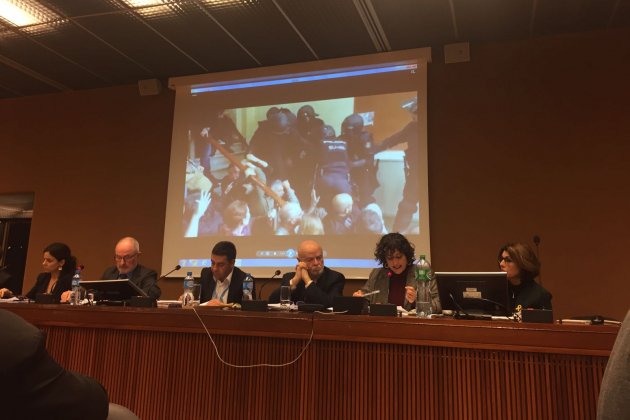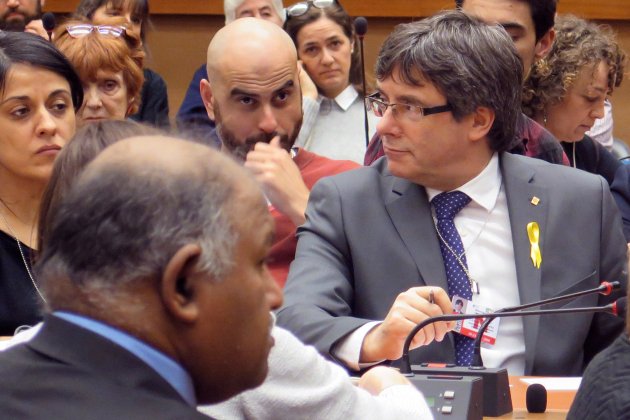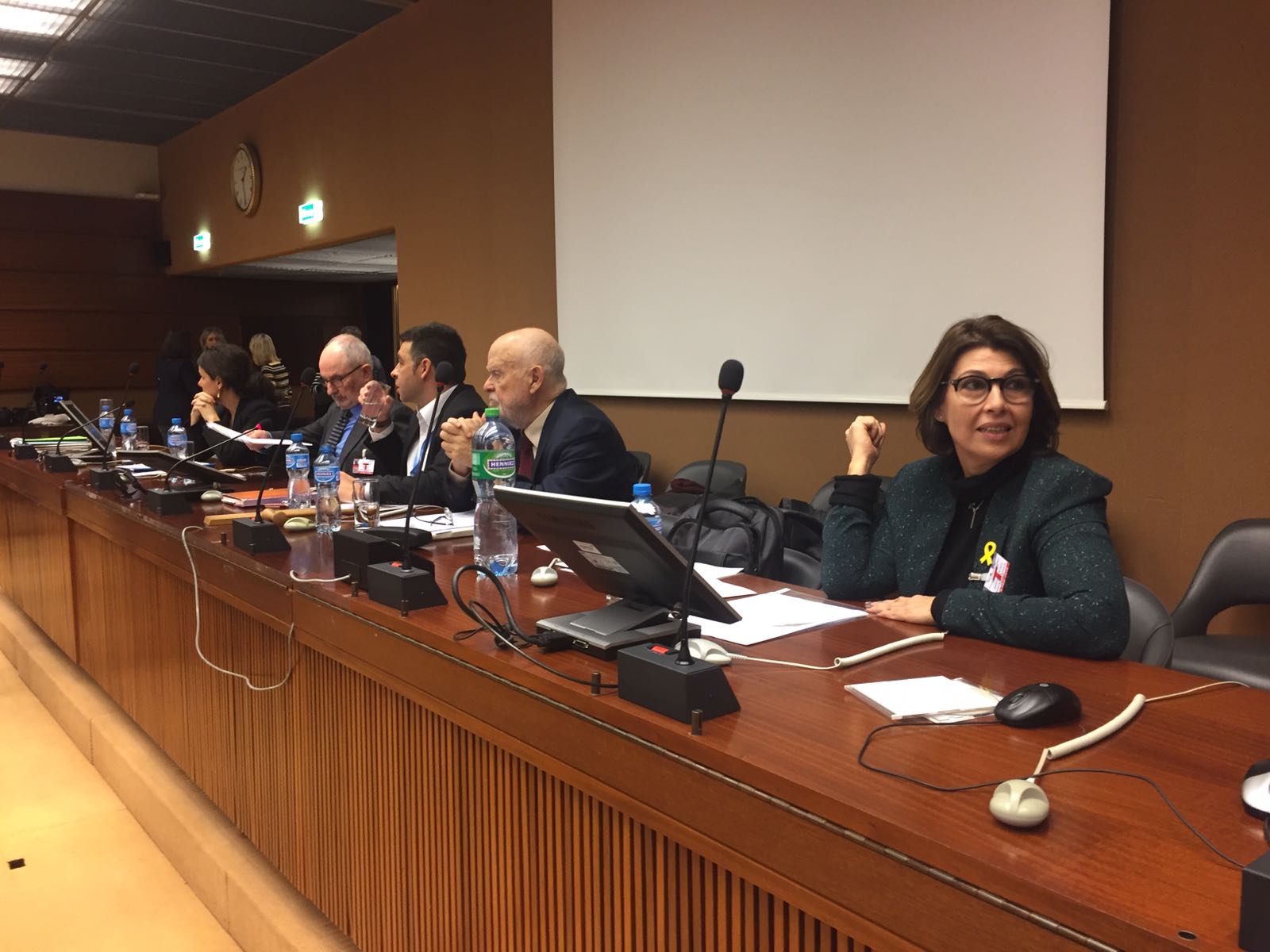Human rights defenders have taken the case of Catalonia to the UN to reveal Spain's repressive attitude to the issue. This Monday, the United Nations headquarters in Geneva has been the stage for a conference on the regression of human rights in Spain, organised by the Catalan Institute of Human Rights and other associations which work in the area.
Attendees at the event included Catalan president Carles Puigdemont (JxCat), former CUP deputy Anna Gabriel and MEP Jordi Solé (ERC), showing an image of unity of the independence movement in the face of the violation of human rights in Catalonia.
The panel included Martín Pallín, a former Supreme Court judge; Michael Hamilton, senior lecturer in public protest law at the University of East Anglia (UK); Rafael Ribó, Catalonia's ombudsman; lawyer Anaïs Franquesa; and Margalida Capellà, professor of international public law at the University of the Balearic Islands. It also featured emotional testimony from Laura Masvidal, wife of Joaquim Forn, and a presentation from the president of the Institute of Human Rights of Catalonia, David Bondia.
The event also included a showing of some of the chilling images of police violence recorded during last year's independence referendum, shaking some of the attendees, as they described during the question period after the speeches.

"Criminalising parliamentary action"
The event's different speeches were aimed, on the one hand, at denouncing Spain's attitude and, on the other, to a "cry for help" to the international community to react to the repression.
A former Supreme Court judge, Martín Pallín, was very critical of the actions by Spain's public prosecution service and his former court, saying that they are "criminalising a parliamentary act". Pallín also denounced it as "inadmissible for a judge to interfere in the decision of a Parliament" to prevent someone from attending an investiture debate and said that "all the resolutions are continued interference by a judge in politics". "That reminds me of the law of the dictatorship," he said.
"During the Franco era, you were a Francoist until you showed otherwise. In democracy, you are innocent until you show otherwise, but it's different now." That was how blunt Catalan ombudsman Rafael Ribó was in his speech. He also expressed regret that "for the first time, you can legally persecute the expression of opinions in a Parliament". Ribó also wanted to remember those wounded on 1st October and the complaints his organisation received. The ombudsman also denounced the judges having a role in the presidential investiture, "all that is an attack on the millions of people who went to vote on 21st December. No judge can decide who is the candidate".

EFE
Referendum police actions looked to “scare the population”
On the other hand, Anaïs Franquesa, criminal lawyer and director of litigation for Irídia - Centre for the defence of human rights, said that the "police operation on 1st October was aimed at scaring the population, and not at stopping the vote". Moreover, she said that, as some of the Spanish police, for example, pulled women's hair, there were "gender components in these attacks".
Professort Margalida Capellà said that Oriol Junqueras, Joaquim Forn, Jordi Sànchez and Jordi Cuixart are "political prisoners". "[Their] detention is discriminatory compared to those who have been able to elude prison," he said. She also denounced that "there is a politicisation of the rulings dictated against the prisoners" and that depriving them of liberty is excessive.
Laura Masvidal, Joaquim Forn's wife, had similar comments. She asked how the minister could have received more than 6,000 letters in prison if he is not a political prisoner. Masvidal also criticised the prisoners being held near Madrid, instead of being moved closed to Catalonia, for the logistical and financial difficulties the distance causes. She, however, thanked the solidarity of the majority of the Catalan people with the prisoners.
Finally, Dr Michael Hamilton said that in Catalonia there has been a clear violation of the "right to assembly" and that he also sees a lack of freedom of expression. Relating to the latter, he recalled the European Court of Human Right's verdict in a case involving burning photographs of the Spanish monarch.

